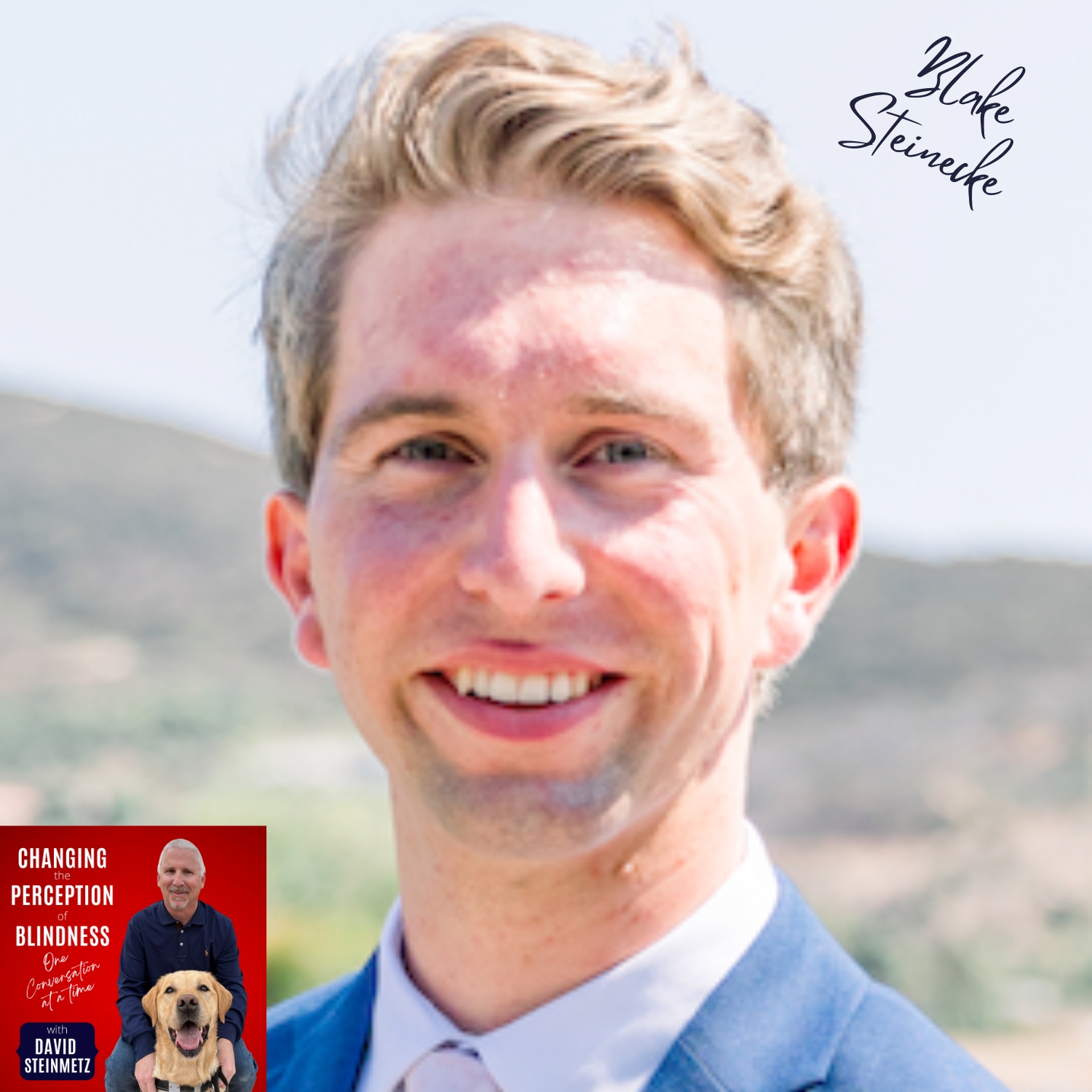
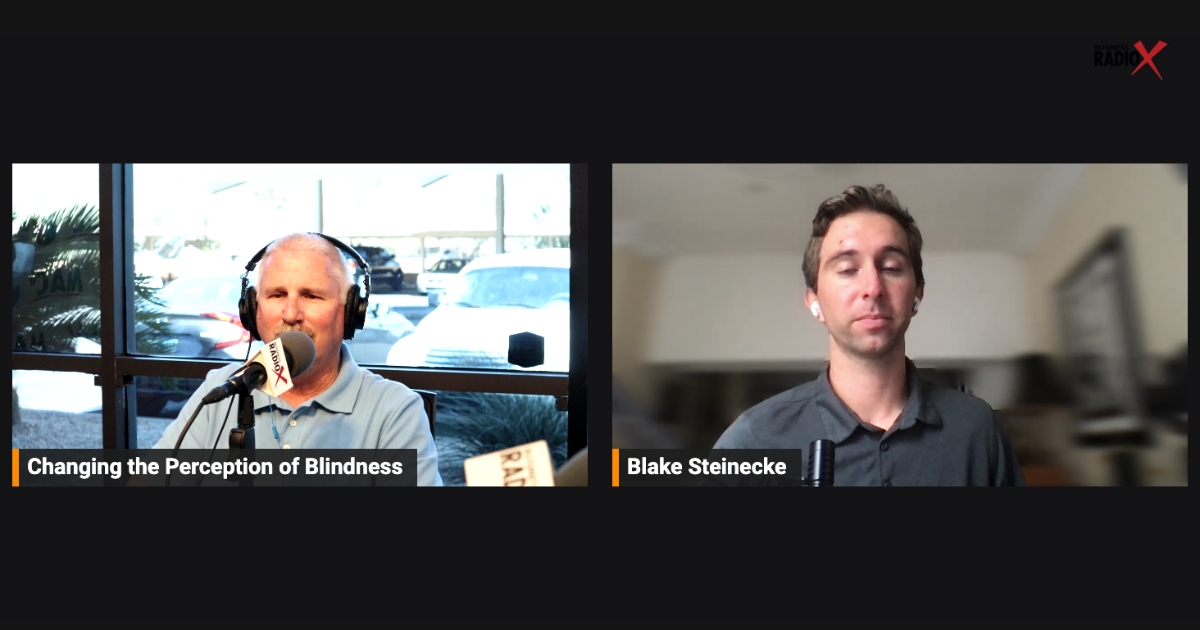
Abilities not Disabilities E18
On this episode of Changing the Perception of Blindness: One Conversation at a Time, Blake Steinecke and David Steinmetz talked about the importance for Hiring Managers to recognize the challenges people who are blind have to overcome in education, previous work experience and everyday life when evaluating candidates who are blind. “These challenges have made me a better problem solver and creative thinker,” said Blake.
Over half of working-age people who are blind or visually impaired are not in the labor market, meaning they are not working and not seeking work, compared with fewer than a quarter of people without disabilities.
For employers and job seekers we have to change our perception of what having a disability means. “Sometimes you need to point your handlebars downhill and go for it. You have to trust your experience and training to get you to the bottom of the hill safely,” said David Steinmetz
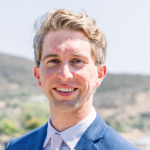 Blake Steinecke grew up with perfect vision and at the age of 16 a condition called LHON caused him to go through severe central vision loss and become legally blind. This created many new challenges of relearning how to do school, navigating college, employment and more.
Blake Steinecke grew up with perfect vision and at the age of 16 a condition called LHON caused him to go through severe central vision loss and become legally blind. This created many new challenges of relearning how to do school, navigating college, employment and more.
Blake has a degree in marketing from Cal State San Marcos and has worked in software sales, marketing in the mountain bike industry, accessibility testing and training, and now leads marketing for Clusiv as the Growth Manager.
Through Blakes work, he is able to connect his educational and professional background, his experience navigating the challenges of education and employment being blind, and his passion to serve the blind community through the work he does with Clusiv.
Outside of work Blake plays blind hockey for the US Blind Hockey Team, enjoys spending time with his wife, Amanda, and making videos, some of which you can find on his YouTube channel Adapting Sight.
Connect with Blake on LinkedIn and follow Clusiv on Facebook, Twitter and Instagram.
Connect with Jason on LinkedIn.
About Your Host
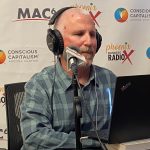 As the manager of Community and Public Relations, David Steinmetz uses his expertise, education, and personal experiences to “change the perception of blindness.”
As the manager of Community and Public Relations, David Steinmetz uses his expertise, education, and personal experiences to “change the perception of blindness.”
Diagnosed with RP, a blinding retinal disease, at the age of 19, David uses his personal story to drive change that leads to improved employment outcomes and community integration for people who are blind or visually impaired.
Mr. Steinmetz graduated from Arizona State University with a bachelor’s degree in Business Management and Economics. Additionally, Steinmetz has continued his education by graduating from the Business Management Training (BMT) program provided by Darden Graduate School of Business, University of Virginia.
In 2008, David was the national recipient of the National Industries for the Blind Milton J. Samuelson Career Achievement award. This prestigious award recognized Mr. Steinmetz for his career achievements and community service work.
David Steinmetz is a member of the Governors’ Council on Blindness & Visual Impairments, is a Board Member at the Arizona Center for the Blind & Visually Impaired (ACBVI) and serves his community through the Chandler Lions Club.
Connect with David on LinkedIn and Instagram.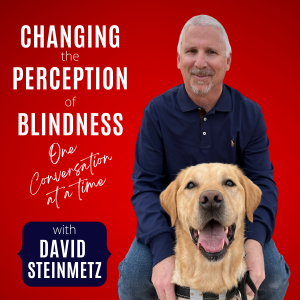
About the Show
Changing the Perception of Blindness; One Conversation at a Time is dedicated to breaking down barriers, de-mystifying blindness and promoting real world solutions that empower people who are blind to live a full and inclusive life.
Host, David Steinmetz connects with organizations, industry professionals and thought leaders who are working to bridge the gap that creates a world accessible for all.
About Arizona Industries for the Blind
Arizona Industries for the Blind is a nonprofit organization dedicated to creating employment opportunities for people who are blind. It’s employees, more than half of whom are blind, deliver a variety of products and services, including a full-service Warehousing and Distribution Center, confidential Digital Data Scan (DDS) services for private businesses and government and the operation of Base Supply Centers located at each of Arizona’s three military bases under the umbrella of the U.S. Department of Labor’s AbilityOne program.














